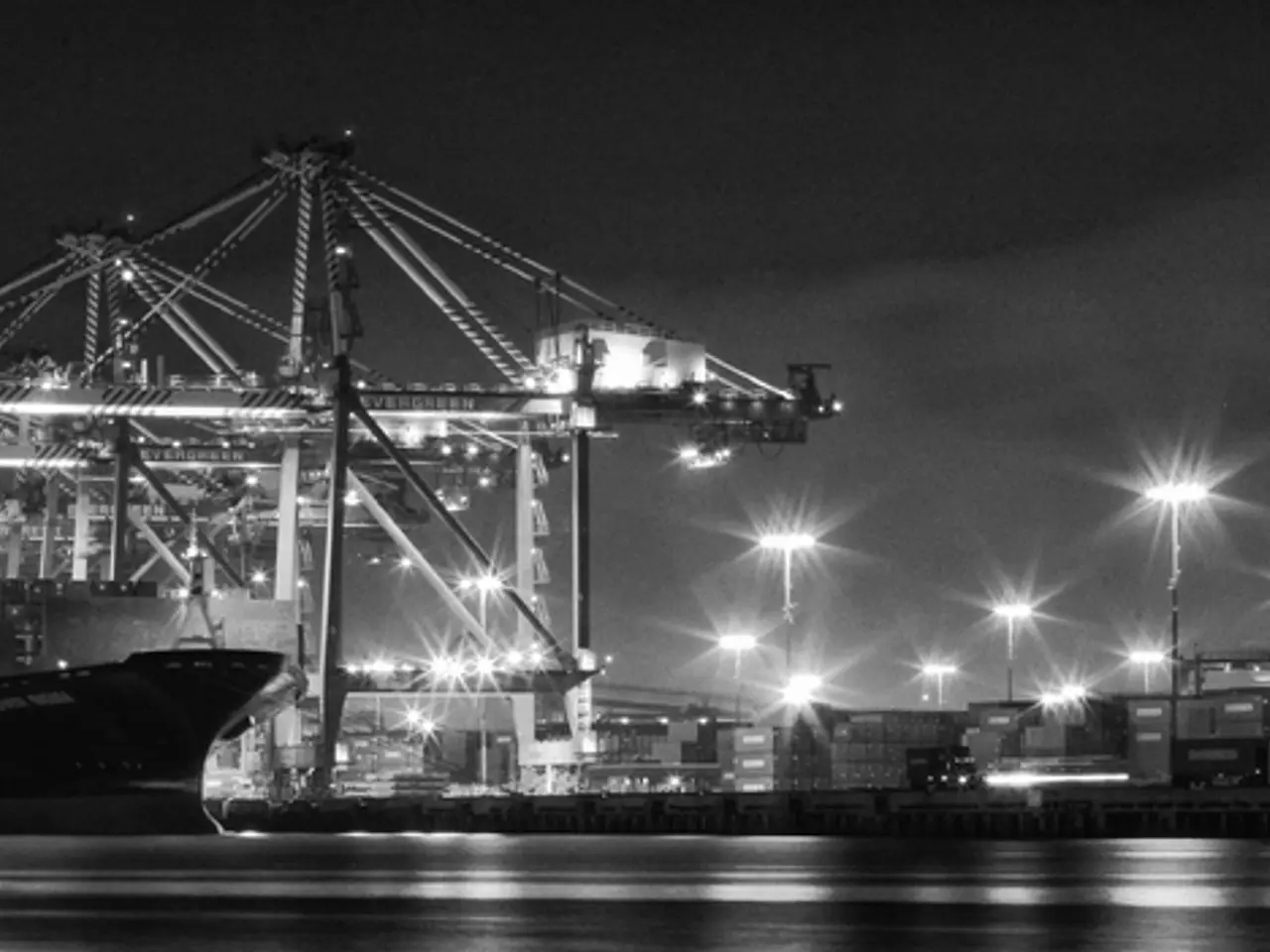Hanwha's deputy leader embarks on a trip to Washington D.C. to support negotiations on tariff issues
The South Korean government is actively negotiating to lower the 25 percent tariff on its exports to the United States, with a significant proposal on the table known as the "Make American Shipbuilding Great Again" (MASGA) initiative.
This multibillion-dollar plan, presented by South Korean Minister Kim Jung-kwan, aims to revitalize and support the U.S. shipbuilding industry by leveraging South Korea's advanced shipbuilding expertise and capital investment capabilities. The proposal aligns with the Trump administration's interest in boosting American shipbuilding under its "America First" policy.
The MASGA initiative entails tens of billions of dollars in investment by major South Korean shipbuilders, including HD Hyundai and Hanwha Group, into U.S. shipyards and facilities. This would include government-backed financial support such as loans and guarantees from state-backed institutions like the Export-Import Bank of Korea and Korea Trade Insurance Corporation.
HD Hyundai is partnering with the U.S. company Edison Chouest Offshore to build mid-sized container ships by 2028. Hanwha Group's acquisition of Philly Shipyard resulted in contracts to build liquefied natural gas (LNG) carriers, including the first export-viable LNG ship ordered by the U.S. in decades. These moves illustrate substantial Korean industrial participation in expanding American shipbuilding capacity.
The proposal was officially pitched in high-level talks, including a meeting between Korean Minister Kim Jung-kwan and U.S. Commerce Secretary Howard Lutnick. While U.S. officials reportedly reacted positively, the specifics remain under negotiation with no final agreement confirmed yet. Both countries have expressed strong interest in cooperating on the trade agreement involving MASGA.
Kim Dong-kwan, a key figure in the South Korean delegation, is part of the negotiations and plans to stay in Washington through Friday. Hanwha Ocean, a major shipbuilding arm of Hanwha Group and a central player in the MASGA proposal, has already acquired the US-based Philly Shipyard in December.
The proposed acquisition and investments could potentially follow Hanwha Ocean's acquisition of the Philly Shipyard. Acquiring more shipyards could help lower tariffs to 15 percent or less, similar to Japan's outcome. The proposed acquisition and investments could also be incentives for lower tariffs, aligning with President Trump's focus on job creation in the U.S.
The European Union negotiated a 15 percent tariff rate on most exports, including automobiles, with the U.S. The tariff rate for Japan and the European Union on most exports is below the initial rate set for South Korea. The MASGA initiative, if successful, could potentially lower the tariff rate for South Korea to a more favourable level.
The initiative is significant given that South Korea is the world’s second-largest shipbuilder behind China, which controls over half of the global orderbook. MASGA aims to counterbalance China’s dominance while supporting the American maritime industry. The trade deal deadline and potential tariffs create urgency for a resolution.
- The MASGA initiative, if successful, could potentially lower the tariff rate for South Korea, making it more competitive in a manner that aligns with President Trump's focus on job creation in the U.S. business sector.
- The direct impact of the MASGA initiative, if implemented, could see proportionate reductions in the tariff rate similar to that of the European Union and Japan in the general-news context of global finance and politics.






